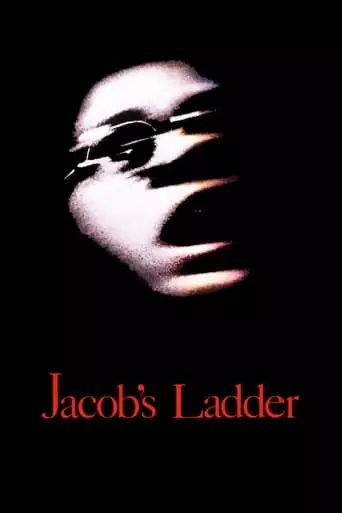
Jacob's Ladder (1990) Watch Online Free
After returning home from the Vietnam War, veteran Jacob Singer struggles to maintain his sanity. Plagued by hallucinations and flashbacks, Singer rapidly falls apart as the world and people around him morph and twist into disturbing images. His girlfriend, Jezzie, and ex-wife, Sarah, try to help, but to little avail. Even Singer’s chiropractor friend, Louis, fails to reach him as he descends into madness.
Jacob’s Ladder (1990), directed by Adrian Lyne, is a psychological horror film that delves into the harrowing experiences of Jacob Singer (Tim Robbins), a Vietnam War veteran grappling with disturbing hallucinations and a fragmented reality.
The narrative unfolds in 1970s New York City, where Jacob, a postal worker, is haunted by vivid and terrifying visions. He encounters grotesque figures, experiences time distortions, and faces a deteriorating sense of reality. These experiences are compounded by the recent death of his son, Gabe, and the end of his relationship with his former wife, Sarah.
Jacob’s interactions with his friends and colleagues further blur the lines between reality and illusion. He seeks medical help, but the treatments only seem to exacerbate his symptoms. As the film progresses, Jacob uncovers a sinister conspiracy involving a government experiment known as “The Ladder,” which aimed to create super-soldiers through the use of a drug called “The Ladder.” This revelation leads Jacob to question his own experiences and the nature of his existence.
The film’s climax reveals that Jacob died during the war, and the events depicted are manifestations of his experiences in the afterlife, as he comes to terms with his death and seeks redemption. The narrative structure, characterized by non-linear storytelling and surreal imagery, mirrors Jacob’s psychological turmoil and descent into madness.
Jacob’s Ladder explores several profound themes:
Upon its release, Jacob’s Ladder received critical acclaim for its innovative storytelling and compelling performances. Roger Ebert praised the film, stating that it “wants to evoke the feeling of a psychological state in the audience,” highlighting its ability to immerse viewers in Jacob’s experiences.
The film has since gained a cult following, influencing numerous works in the horror and psychological thriller genres. Its exploration of the afterlife and the human psyche has been cited as a significant contribution to cinematic storytelling.
After viewing Jacob’s Ladder, audiences are likely to experience a range of emotions, including unease, introspection, and contemplation. The film’s exploration of the afterlife and the human psyche may prompt viewers to reflect on their own perceptions of reality and existence.
The haunting imagery and unsettling atmosphere may leave a lasting impression, evoking feelings of discomfort and thoughtfulness. The film’s open-ended conclusion invites personal interpretation, allowing viewers to derive their own meanings and insights from the narrative.
In summary, Jacob’s Ladder is a thought-provoking and emotionally resonant film that challenges conventional storytelling and delves into profound themes of trauma, reality, and the afterlife. Its innovative approach and compelling performances make it a standout in the psychological horror genre.
